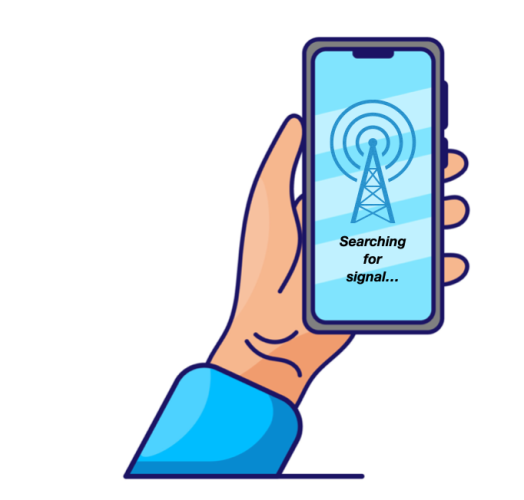
These days a strong cellular signal is essential for maintaining seamless communication, accessing important information, and staying entertained. With millions of Americans owning a smartphone and most of them feeling they couldn’t live without their devices, dealing with weak cellular signals can be incredibly frustrating. Factors such as adverse weather, interference from building materials, terrain, distance from cell towers, and network congestion can all lead to poor signal quality. Fortunately, there are simple and effective ways to improve your cellular signal, whether you’re in a building, on a road trip, or in your RV. Here are some practical tips to help you stay connected.
1. Check Device Settings
Sometimes, signal issues can be resolved by tweaking your phone’s settings. Here are a few checks you can perform:
- Airplane Mode: Ensure your phone isn’t in airplane mode.
- Data Activation: Make sure data services are activated on your device.
- Time Zone Settings: Set your phone’s date and time to the current time zone.
- Network Settings: Select the correct network generation (4G LTE or 5G) for your area.
- Carrier Updates: Implement all updates provided by your carrier.
- SIM Card: Check if your SIM card is properly seated and undamaged. Remove the battery, clean the SIM card with a soft, dry towel, and replace the battery.
If these steps don’t resolve the issue, further measures might be necessary.
2. Keep Your Battery Charged
A common but often overlooked factor in weak signal issues is your phone’s battery level. Mobile devices tend to conserve power when the battery is low, which can result in reduced effort to acquire and maintain a strong signal. Here’s how you can keep your battery in check:
- Use WiFi, Bluetooth or NFC only when necessary: Turn off these features when not in use to save battery.
- Reduce screen brightness: This helps conserve battery power significantly.
- Keep your firmware updated: Ensure your phone’s software is up to date for optimal performance.
- Turn off push notifications: Reduce the number of notifications to save power.
- Close background apps: Make sure no unnecessary apps are running in the background.
- Carry a charger: Always have a charger or power bank handy when you leave home.
3. Minimize Interference
Various obstacles can interfere with your cell signal, including natural terrain and man-made structures. Here are some tips to minimize interference:
- Electronic Devices: Other electronic devices can cause interference. Try to reduce the clutter of electronic gadgets, especially in areas where you need a strong signal.
- WiFi Interference: Turn off WiFi or switch your phone to WiFi data if your cellular signal is weak.
- Smart Devices: Reduce the number of active smart devices (IoT devices) in your immediate vicinity to avoid signal interference.
4. Use a Signal Booster
One of the most reliable ways to improve cell signal is to use a signal booster. Companies like Nextivity, weBoost, WilsonPro, and Surecall offer signal boosters that can significantly enhance your cell signal. These boosters consist of three main components:
- Outside Antenna: Captures the external signal from the nearest cell tower.
- Amplifier: Strengthens the captured signal.
- Indoor Antenna: Distributes the boosted signal within your home, business, or vehicle.
Some signal boosters can make the inbound signal up to 32 times stronger, ensuring reliable service for calling, texting, streaming, and data usage. Most will work with any carrier, providing enhanced signal strength for everyone in your home or car, regardless of their network.
By following these tips, you can significantly improve your cellular signal, ensuring you stay connected wherever you go.
For more information and to discuss your setup with an experienced representative, contact the 5Gstore team.

